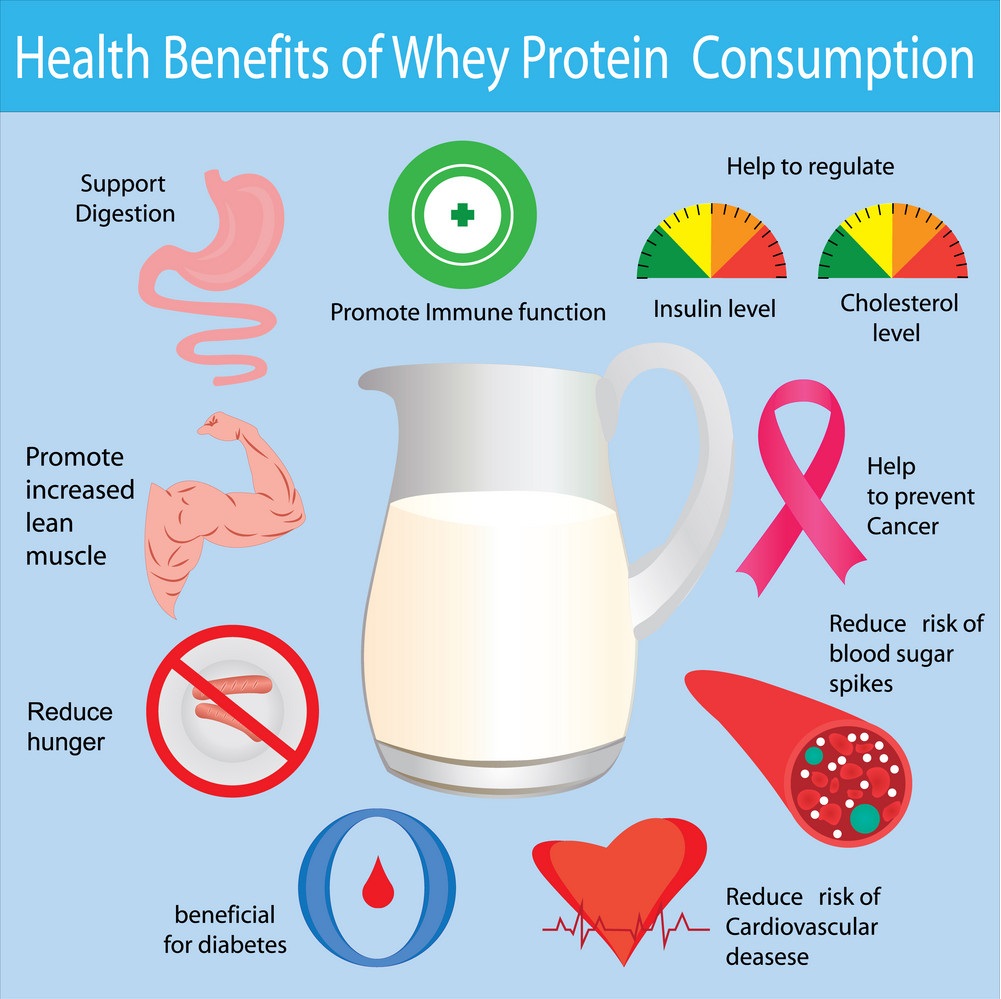
Dietician Sheela Seharawat
‘Whey Protein’ is perhaps the biggest weight loss supplement that is being sold in the market today. It has been attributed for its many health benefits as well as improve stamina, boost metabolism and aids faster recovery after workouts.
Why is it considered so beneficial for people who performs cardiovascular activities and body building?
Expert dietician and mentor of Diet Clinic, Sheela Seharawat says, whey is derived from cow’s milk and is comprised of proteins, fat, lactose and minerals. The protein component in whey is most valued and the sports nutritional experts works on it to develop it further with higher amounts of proteins that can easily and efficiently be absorbed in the body. All bodybuilders, athletes, and people looking to build muscle are interested in advanced formulas with high nutritional content. One of the newest forms of whey supplements are manufactured by cross flow micro-filtered and cold processed ion-exchanged methods.
What are the health benefits of whey protein?
Whey protein is a rich source of protein that also helps improving the nutritional contents of our diet. It is believed that it also has its impact on our immune system. Apart from a weight loss supplement is has numerous other health benefits also like:
- It aids weight loss: As per studies, whey proteins helps cut body fats and thereby aiding weight loss. It promotes weight loss by suppressing appetite, boosting metabolism and helps maintain muscle mass.
- It helps reduce inflammation: Sufficient doses of whey protein significantly reduces C-reactive protein, a key component responsible for weight loss.
- Helps in treating type 2 diabetes: whey protein is found very effective in regulating blood sugar levels, especially if combined with a high-carb meal. It keeps the blood sugar levels in moderation.
- Helps lowering blood pressure: Due to the presence of bioactive peptides also called as lactokinins, whey proteins have the capabilities of lowering elevated levels of blood pressure.
- Promotes muscle gain: Leucine in whey proteins is one of the most growth promoting amino acid found in it. It not only promotes the growth of muscle mass but also helps maintain it.
- It helps maintaining the body’s antioxidant defence: One of the most vital antioxidant in the human body is glutathione and its production in the body is largely dependent on cysteine, an amino acid. Whey protein is a high cysteine food and thereby aids in helping the body’s antioxidant defence mechanism.
Are there any side effects of taking whey protein?
Though whey protein is very safe for all of us, yet high doses can have some side effects such as:
- nausea
- excessive thirst
- increased bowel movements
- bloating
- fatigue or tiredness
- headache
- cramps
- low appetite
Nursing mothers and people who are allergic to cow’s milk or milk as a whole, are advised to stay away from whey protein.
Are there any dangers of using whey protein?
There could be numerous risks associated with regularly having high quantities of protein powders and in particular whey protein. Some are:
- It may cause digestive distress: People who have digestive allergies or are intolerant to milk and milk based products can experience severe digestive discomfort as whey protein is a milk based protein powder.
- May have calories and sugars: Many products available in the market have loads of sugar to make it a drink than just a supplement. It can spike blood sugar levels and cause weight gain in the long run.
They have unbalanced nutrient component as compared to natural products: Protein rich whole foods have low density proteins than whey protein powders. Meats, seafood, eggs and plant protein sources have superior protein profile than whey protein powders available in the market.










